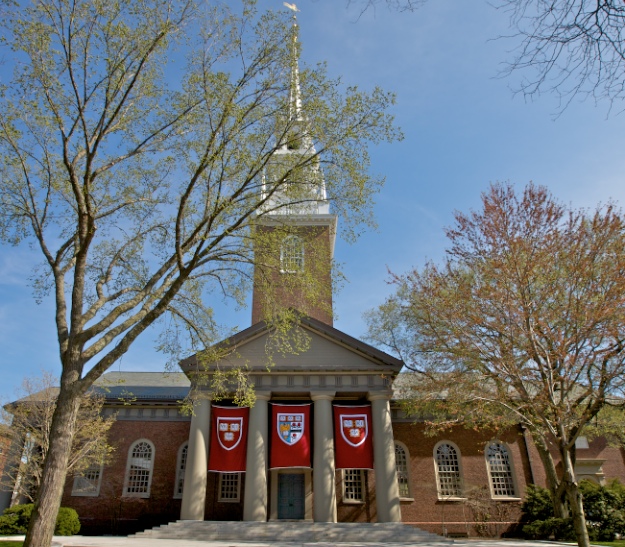ESR linked to an older blog post by Eliezer Yudkowsky which seems to explain how fanatical cults survive the impact of events that on the surface should cause them to give up their faith:
Early studiers of cults were surprised to discover than when cults receive a major shock — a prophecy fails to come true, a moral flaw of the founder is revealed — they often come back stronger than before, with increased belief and fanaticism. The Jehovah’s Witnesses placed Armageddon in 1975, based on Biblical calculations; 1975 has come and passed. The Unarian cult, still going strong today, survived the nonappearance of an intergalactic spacefleet on September 27, 1975. (The Wikipedia article on Unarianism mentions a failed prophecy in 2001, but makes no mention of the earlier failure in 1975, interestingly enough.)
Why would a group belief become stronger after encountering crushing counterevidence?
The conventional interpretation of this phenomenon is based on cognitive dissonance. When people have taken “irrevocable” actions in the service of a belief — given away all their property in anticipation of the saucers landing — they cannot possibly admit they were mistaken. The challenge to their belief presents an immense cognitive dissonance; they must find reinforcing thoughts to counter the shock, and so become more fanatical. In this interpretation, the increased group fanaticism is the result of increased individual fanaticism.
I was looking at a Java applet which demonstrates the use of evaporative cooling to form a Bose-Einstein condensate, when it occurred to me that another force entirely might operate to increase fanaticism. Evaporative cooling sets up a potential energy barrier around a collection of hot atoms. Thermal energy is essentially statistical in nature — not all atoms are moving at the exact same speed. The kinetic energy of any given atom varies as the atoms collide with each other. If you set up a potential energy barrier that’s just a little higher than the average thermal energy, the workings of chance will give an occasional atom a kinetic energy high enough to escape the trap. When an unusually fast atom escapes, it takes with an unusually large amount of kinetic energy, and the average energy decreases. The group becomes substantially cooler than the potential energy barrier around it. Playing with the Java applet may make this clearer.
In Festinger’s classic “When Prophecy Fails”, one of the cult members walked out the door immediately after the flying saucer failed to land. Who gets fed up and leaves first? An average cult member? Or a relatively more skeptical member, who previously might have been acting as a voice of moderation, a brake on the more fanatic members?
After the members with the highest kinetic energy escape, the remaining discussions will be between the extreme fanatics on one end and the slightly less extreme fanatics on the other end, with the group consensus somewhere in the “middle”.
[…]
When Ayn Rand’s long-running affair with Nathaniel Branden was revealed to the Objectivist membership, a substantial fraction of the Objectivist membership broke off and followed Branden into espousing an “open system” of Objectivism not bound so tightly to Ayn Rand. Who stayed with Ayn Rand even after the scandal broke? The ones who really, really believed in her — and perhaps some of the undecideds, who, after the voices of moderation left, heard arguments from only one side. This may account for how the Ayn Rand Institute is (reportedly) more fanatic after the breakup, than the original core group of Objectivists under Branden and Rand.
ESR thinks the Anthropogenic Global Warming (AGW) groups are starting to suffer this same phenomenon.
Here’s a major sign of evaporative cooling: the American Physical Society has since appointed a committee of working scientists (one of whom is Curry herself) to reexamine and possibly reverse its public commitment to AGW alarmism. As well it should; the alarmists’ predictions have failed so massively that they no longer have a scientific case – they’re going to have to rebuild one with a set of models that at least retrodicts the actual data.
Whatever findings the APS committee issues, the very fact that it has been convened at all is a sign that (in Yudkowsky’s analogy) the higher-energy molecules have become excited by the counterevidence and are exiting the cold trap. Or, in the metaphor of an earlier day, the rats are looking for a way off the sinking ship…
This is happening at the same time that the IPCC’s AR5 (Fifth Assessment Report) asserts its highest ever level of confidence that the (nonexistent for 15+ years) global warming is human-cased. What Yudkowsky tells us is that AR5′s apparently crazed assertion is a natural result of the mounting counterevidence. The voices of sanity and moderation, such as they are in the AGW crowd, are evaporating out; increasingly, even more than in the past, their game will be run by the fanatics and the evidence-blind.






